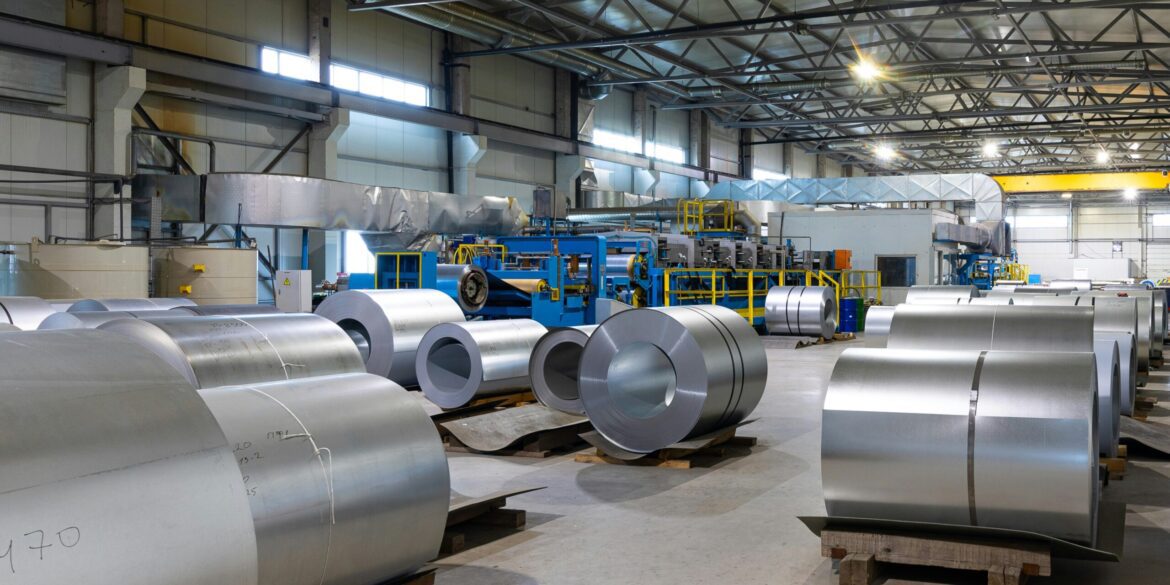On June 13, 2025, President Donald Trump authorized a significant $14.9 billion investment by Japan’s Nippon Steel into U.S. Steel, marking a pivotal shift in U.S. industrial and foreign investment policies. The decision came after a national security review conducted by the Committee on Foreign Investment in the United States (CFIUS), ultimately leading to an agreement that will not only infuse substantial capital into the American steel giant but also ensure national security interests are safeguarded.
A Strategic Investment with National Security Safeguards
The agreement, which includes an $11 billion investment by 2028, outlines a detailed framework for the modernization and development of U.S. Steel’s operations. The investment will be used to advance technologies, particularly through the construction of a new electric arc furnace, which is expected to bolster the company’s steel production capabilities and environmental footprint. Nippon Steel, one of the world’s largest steelmakers, will also maintain U.S. Steel’s corporate headquarters in Pittsburgh, solidifying its commitment to American workers and the local economy.
However, this investment isn’t just about economic growth—it also includes significant national security considerations. In a rare move, the U.S. government will hold a “golden share” in the company, a special type of stock that allows it to veto key decisions that may pose a risk to national security. This safeguard ensures that the U.S. can intervene in the company’s operations if needed to protect vital interests, such as defense capabilities or critical infrastructure.
The approval of this deal represents a reversal of Trump’s previous stance, as earlier concerns were raised about foreign ownership of U.S. strategic industries. Despite this, the executive order signed by the president allows Nippon Steel to go ahead with its substantial investment, following a thorough evaluation by CFIUS. The national security review addressed potential concerns about foreign influence in the steel sector, particularly in areas such as technology transfer and the protection of sensitive industrial processes.
Reviving a Key Sector in the U.S. Economy
The U.S. steel industry has faced considerable challenges in recent years, including rising global competition, fluctuating demand, and the environmental impact of traditional steel production methods. By investing heavily in U.S. Steel’s operations, Nippon Steel is positioning itself as a key player in modernizing U.S. manufacturing while providing crucial financial support. U.S. Steel, based in Pittsburgh, has been one of the cornerstone companies of America’s industrial history, and this deal signals a long-term commitment to the steel sector’s revitalization.
The construction of the electric arc furnace is expected to modernize the company’s production capabilities. This technology, which is more energy-efficient and environmentally friendly than traditional blast furnaces, aligns with global trends toward sustainability and decarbonization in manufacturing. This move also aligns with the Biden administration’s climate agenda, as it seeks to reduce industrial emissions while boosting job creation in green technologies.
The agreement will help to create thousands of new jobs, including those in steel production, engineering, and advanced manufacturing. U.S. Steel has promised that these jobs will primarily benefit American workers, with the commitment to maintain a U.S.-majority board as part of the deal. These provisions also ensure that the company’s operational decisions remain aligned with the interests of U.S. stakeholders, both at the corporate and national level.
The Political and Economic Implications
Politically, the approval of this deal is likely to have significant implications for U.S.-Japan relations. The deal underscores the growing economic ties between the two nations, especially in industries like steel and manufacturing that are central to both economies. Japan has long been a major player in global steel production, and this deal strengthens its presence in the U.S. market, creating a partnership that could have ripple effects throughout the global steel industry.
From a broader economic perspective, the deal also highlights the importance of foreign direct investment (FDI) in rejuvenating industries critical to the U.S. economy. While Trump had previously expressed concerns about foreign acquisitions of American companies, the shift in policy here reflects a growing recognition of the need for international collaboration to modernize aging U.S. industries. This is particularly significant as the U.S. seeks to rebuild its manufacturing sector and reduce reliance on imports.
Critics of the deal, however, might argue that such a large foreign stake in a strategic industry could still pose long-term risks, especially if the balance of control swings too far toward foreign interests. The oversight provided by the golden share could address some of these concerns, but many will continue to monitor the progress of the deal closely.
Looking Ahead
As this agreement progresses, the key next steps will be the formal execution of the deal by both U.S. Steel and Nippon Steel, as well as final regulatory approvals from federal authorities. Once the deal is finalized, it could serve as a model for future foreign investments in U.S. industries, balancing capital infusion with national security oversight. For now, U.S. Steel’s workforce and the American steel industry as a whole stand to benefit from this landmark deal, which promises to modernize facilities, create jobs, and ensure that the United States remains competitive in global manufacturing.
This move also underscores the strategic importance of the steel industry to U.S. economic security. With the backing of Nippon Steel and the U.S. government’s added oversight, this deal is set to play a key role in reshaping the future of steel production in America.

